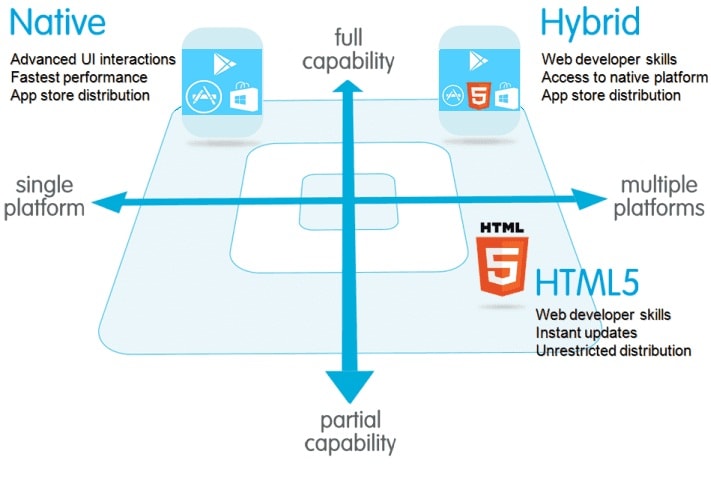Currently, businesses are moving towards app development rapidly. Applications are the biggest profit-generating mobility products and cannot be overlooked by anyone. No matter what is the size of your business, you must take mobile app development seriously in order to make your growth effective. In any business, customers are primarily important and offering a well functional app to them is a serious business strategy. But the biggest hack arrives when you actually plan for it. The set of questions comes in front of you are like – what are best Cost-Effective Technologies for Mobile App Development to develop great mobile applications, what kind of app it must be, and what will be the cost of developing it.
You will need a strong brainstorming session to understand the technical feasibility, implementation of concepts and many more. Even a development firm needs everything in order; they discuss everything during the phase of prototyping.
One should spend a quality time to analyze the needs of an app before putting steps into development. Whatever the features are required like application architecture, platforms, frameworks, tools, technologies and the monetization decisions must be discussed in depth.
There are three types of technologies on which apps are developed –
-
HTML5
-
Native
-
Cross-Platform

HTML5 App Development
HTML5 is one of the powerful technologies which are serving itself as a domain for reducing the gap between mobile sites and applications. Deploying apps across various platforms arise many issues and due to this HTML5 mobile app development comes up to reduce the complexity and overall cost of the app. It is used to develop web apps for different mobile OS and provides offline support, multimedia, geolocation API etc.
Advantages of HTML5 app development
- Improved capabilities
- Remote updates
- Suitable for emerging technologies
- Based on open standards
Tools for HTML5 App Development –
GapDebug
This tool is vital for HTML5 developers as it simplifies debugging experience. It allows you to debug your mobile applications on the desktop with the help of using the browser and Chrome Dev tools.
BitBucket
If the developers are familiar with Git and GitHub, they can use this tool with extreme ease. It provides multiple private repositories where developers can store, share and manage their code.
Native App Development
Native apps are built for a specific platform such as Android and iOS. Native apps are used to develop high functionality and reliability. The native app supports device’s built-in features. There are mobile operating systems which work behind the native app functionality. Developers are provided with SDK and other required tools to develop the apps easily. These apps can be downloaded from the specific app stores.
Advantages of Native App Development
- Native apps can use inbuilt hardware features
- Complete support from App stores
- Safety offered by specific App stores
- From developers point of view, SDK and other tools are provided to run code faster
- More secure and reliable app development
- Easier to add new features
- Better UI/UX
There are many mobile operating systems available for different mobile devices and among them common are – Android, iOS, Blackberry, Symbian, and Windows etc. The biggest competitors amongst them are Android and iOS. Let’s discuss both of them from scratch.
Android App Development
We can admit this fact that almost 80% of total devices are Android based. There is a number of reasons behind the adoption of the most popular mobile operating system such as the low cost of the device, easy tools, and open source code. You must have a sound knowledge of Java, C++, and J2EE if starting for android app development. Also, a .NET developer can easily migrate the apps into Android. With various versions and tools, Android is full of varieties.
